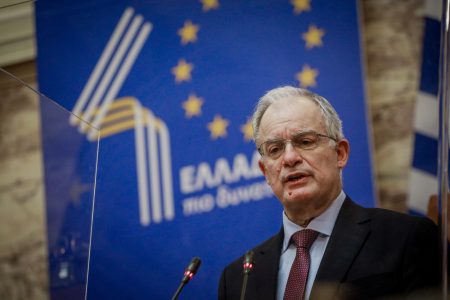The fact that US Secretary of State Rex Tillerson will be visiting Turkey on 15-16 February for talks with President Recep Tayyip Erdogan, Prime Minister Binali Yildirim, and Foreign Minister Mevut Cavusoglu, has been known for some time.
What was not known until now is that US President Donald Trump’s National Security Advisor, H.R. McMaster, will be accompanying Tillerson, offering yet another indication of the weight assigned by Washington to Ankara’s operations in Afrin, Syria, and in its broader region.
At the same time, in what was widely viewed as an indication of Washington’s concern over Ankara’s escalation of tensions in the Aegean and in the Mediterranean around Cyprus, it became known that the US Ambassador to Athens, Geofrrey Pyatt, has also been summoned to Ankara.
In an apparent response to a spate of Greek press reports, the US Embassy in Athens issue a press release de-linking Pyatt’s trip to Ankara from tensions in the Aegean and the Mediterranean.
«U.S. Ambassador to the Hellenic Republic Geoffrey R. Pyatt is traveling to Ankara from 15 – 16 February 2018 for consultations with Secretary of State Rex Tillerson, Assistant Secretary of State for European and Eurasian Affairs Wess Mitchell and several of his regional counterparts to discuss a range of topics, including our ambitious energy agenda where coordination with Ambassadors from Baku to Belgrade is intrinsic to our strategy. Contrary to press reports, he will not be meeting with Turkish Foreign Affairs Minister Mevlut Cavusoglu,» read the press release, which did not in any way deny that Greece and Cyprus will be in the «range of topics» to be discussed with Tillerson.
It is unclear if the decision to summon Pyatt to Ankara came after Monday’s move by the Turkish Coast Guard to ram a Greek Coast Guard ship in the vicinity of the Imia islets.
Pyatt has for weeks expressed concerns about the prospect of a military “accident” in the Aegean – due to a buildup of extremely advanced military systems operating in close proximity – leading to a Greek-Turkish clash.
Pyatt also intimated in an interview with Greece’s Skai television in late January, that Washington would stand in support of Greece’s sovereign rights in the event of a Turkish challenge.
Pyatt’s presence in Ankara may also be linked to heightened tensions in the Exclusive Economic Zone (EEZ) of Cyprus, where Ankara is challenging the Republic of Cyprus’ decision to exercise its sovereign rights through its hydrocarbons exploration programme.
The US side is reportedly expected to table proposals for de-escalating tensions in Cyprus’ EEZ and the Aegean.


